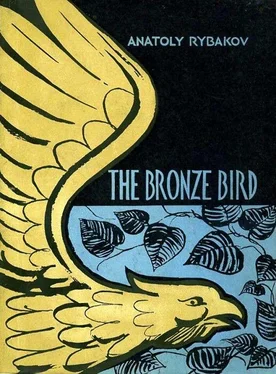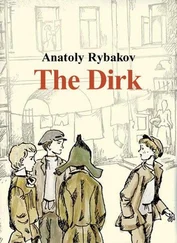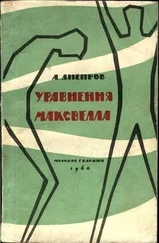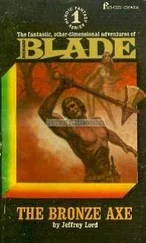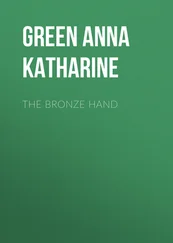Anatoly Rybakov - THE BRONZE BIRD
Здесь есть возможность читать онлайн «Anatoly Rybakov - THE BRONZE BIRD» весь текст электронной книги совершенно бесплатно (целиком полную версию без сокращений). В некоторых случаях можно слушать аудио, скачать через торрент в формате fb2 и присутствует краткое содержание. Город: Moscow, Год выпуска: 1956, Издательство: Foreign Languages Publishing House, Жанр: Детские приключения, Детектив, Исторические приключения, на английском языке. Описание произведения, (предисловие) а так же отзывы посетителей доступны на портале библиотеки ЛибКат.
- Название:THE BRONZE BIRD
- Автор:
- Издательство:Foreign Languages Publishing House
- Жанр:
- Год:1956
- Город:Moscow
- ISBN:нет данных
- Рейтинг книги:5 / 5. Голосов: 1
-
Избранное:Добавить в избранное
- Отзывы:
-
Ваша оценка:
- 100
- 1
- 2
- 3
- 4
- 5
THE BRONZE BIRD: краткое содержание, описание и аннотация
Предлагаем к чтению аннотацию, описание, краткое содержание или предисловие (зависит от того, что написал сам автор книги «THE BRONZE BIRD»). Если вы не нашли необходимую информацию о книге — напишите в комментариях, мы постараемся отыскать её.
THE BRONZE BIRD — читать онлайн бесплатно полную книгу (весь текст) целиком
Ниже представлен текст книги, разбитый по страницам. Система сохранения места последней прочитанной страницы, позволяет с удобством читать онлайн бесплатно книгу «THE BRONZE BIRD», без необходимости каждый раз заново искать на чём Вы остановились. Поставьте закладку, и сможете в любой момент перейти на страницу, на которой закончили чтение.
Интервал:
Закладка:
The troop was jubilant. The attempt to evict them had failed. Misha's prestige soared... It was generally felt that he had done something heroic: he had been to town, talked to people in various places... And the people he had spoken to had treated him as a real, adult leader.
Misha grew in stature in his own eyes as well. He adopted a good-natured patronizing attitude towards the troop. Copying Kolya Sevastyanov, he spoke with them with the tolerant smile an adult reserves for the pranks of children. He stopped arguing and losing his temper, and patiently explained things as adults do when they deal with children. At the same time, he would put a patronizing arm round the shoulder of the boy or girl he was talking to at the moment, just as he had seen Kolya Sevastyanov do hundreds of times. True, Kolya did that because he was very tall, but not so in Misha's case, though he did think he was not doing it so badly.
That was not how everybody looked at it.
Zina Kruglova called Genka and Slava aside to the woods and said with alarm:
"Look, chaps, have you noticed that there's something wrong with Misha?"
Genka and Slava hung their heads: they had noticed it before Zina.
"He's giving himself airs, making out he's a big noise," Genka said.
"He's showing signs of high-handedness," Slava added.
"But that might tear him away from the collective," Zina said, hurriedly.
"Very easily, too," Genka agreed.
"High-handedness," Slava said solemnly, "always isolates a person."
"We must do something," Zina said anxiously. "We cannot allow him to be lost to the common cause before our eyes. We must save him."
There was a pause. Of course, he had to be saved, but how?
"Perhaps we ought to talk to him?" Slava suggested. "Perhaps we ought to explain to him where all this is taking him."
Genka shook his head:
"He won't listen. He'll tell you that that's his style of leadership. No! Stronger methods are needed. We've got to hit him hard enough to wake him up. Then it'll work."
"What do you propose?"
"I propose we raise the question at our Komsomol meeting."
"Just like that? Let's speak to him first. If he doesn't change, we'll take him to task at our meeting."
That was what they finally decided to do. Misha knew nothing about their decision and continued to behave as before.
With adults he comported himself staidly, with a consciousness of his own dignity. True, the chairman of the Village Soviet and the other villagers did not know of his conversation with the secretary of the Gubernia Committee of the Y.C.L., but the fact that Misha did not obey Serov's order and Serov did not insist he do so showed that the troop had strong backing and that it was no simple thing to evict it.
In the troop itself, things had never run as smoothly as now. Almost nothing untoward happened. The only cloud was that Seva fell gravely ill.
His head ached, there was a tickling sensation in his throat, he had difficulty swallowing his food and even found breathing difficult. His fever rose to 103.8°F.
The Bleater, who was the troop's medical expert (his mother was charwoman at an out-patient hospital), ordered Seva to open his mouth, looked into it and announced that he had a sore throat.
"It's all red and, in general, everything's swollen," he said. "Have you had your tonsils out?"
Seva shook his head.
"Perhaps you had them out when you were little and you don't remember?"
But Seva was quite categorical in his denial.
The Bleater again looked into Seva's mouth and declared that indeed his tonsils were still there and that they were badly swollen and should be removed.
"In medicine," the Bleater said, "there are two points of view. One is that tonsils should be removed by a surgical operation, and the other-that they should be cauterised. I'm in favour of the first."
Seva was covered with a few blankets and given hot tea with an extra sweet. Then they began to think what to do with him.
He was too ill to stand the journey to Moscow and could not walk to the hospital. The chairman was sure to refuse to let them have a horse. Misha decided to send the doctor a note requesting him to come to the camp. After all, he did visit patients who were seriously ill. And the hospital had its own horse.
The doctor arrived in a small, open four-wheeled carriage drawn by a huge horse, a real Moscow bityug. (A Russian breed of cart-horse.-Tr.) Tall, stout, with tousled beard, his pince-nez caught over the ear with a black thread, the doctor looked funny sitting on top of his carriage. It seemed as though he were moving behind the enormous bityug with only the reins to hold on to and that he had the tiny carriage squeezed between his legs.
He said that Seva had quinsy (the Bleater looked about him proudly). His tonsils had to be removed (the Bleater fairly swelled with pride). But, he added, no operation could be performed until Seva got well. He had to take medicine and it was necessary to move him from the tent to a house.
"What house?" Misha said, taken by surprise. "He lives in Moscow."
"Do you mean to tell me that none of the peasants will take him in for a few days?" the doctor said. "As a matter of fact... What about the manor? I understand it's vacant."
"Do you think she'll allow it?" Misha asked.
"Who do you mean?"
"The mistress, the housekeeper."
"Hm..." The doctor frowned. "Come with me."
When they turned into the drive, Misha glanced at the loft. The shutters behind the bronze bird were open and that meant the "countess" was at home. But the rest of the house was empty.
By the way the doctor confidently strode along the walk and resolutely climbed the steps to the verandah, it was obvious that he was familiar with the house and the grounds. But Misha was sure nothing would come of this enterprise. The old woman would produce the safeguard and that would put an end to it. Misha awaited the meeting with the "countess" with curiosity. He did not believe they would open the door of this mysterious house and enter it.
No sooner had they reached the verandah than the door opened and the old woman appeared. She awaited their approach in her usual pose, her eyes shut and her head held high, and that made her long aquiline nose seem longer than it really was.
When she opened her eyes Misha knew she would say, "What can I do for you?"
The "countess" did indeed open her mouth and say, "What..." But that same instant she glanced at the doctor and a look of embarrassment appeared on her face. For a fleeting instant her eyes betrayed her confusion. Without ending the phrase, she shut her eyes again. For a moment or two nobody spoke, then the doctor said:
"Sofya Pavlovna, one of these young travellers has fallen ill. Sore throat. I can't allow him to lie in a tent. Please let him in for three or four days."
"What about the hospital?" the old woman asked after a pause, without opening her eyes.
"It is closed for repairs."
"Who will look after him?"
Misha was amazed to hear her speak like any other human being and that she was called simply Sofya Pavlovna.
"One of them," the doctor said, nodding in Misha's direction. "I shall call regularly."
For some time, the old woman made no reply, then she closed her eyes and said:
"You consider it possible to come to this house?"
"I am doing my duty," the doctor replied calmly.
"All right," the old woman said after a short silence. "When will the boy be brought?"
"At once."
"I'll prepare a place for him in the servants' hall. Nobody is to go beyond the servants' hall."
"That's for you to say," the doctor replied.
The old woman turned and disappeared into the house.
Chapter 50
THE SERVANTS' HALL
When Seva was brought to the manor on a stretcher, the door of the servants' hall was open. That was tantamount to permission to enter. The youngsters went in.
Читать дальшеИнтервал:
Закладка:
Похожие книги на «THE BRONZE BIRD»
Представляем Вашему вниманию похожие книги на «THE BRONZE BIRD» списком для выбора. Мы отобрали схожую по названию и смыслу литературу в надежде предоставить читателям больше вариантов отыскать новые, интересные, ещё непрочитанные произведения.
Обсуждение, отзывы о книге «THE BRONZE BIRD» и просто собственные мнения читателей. Оставьте ваши комментарии, напишите, что Вы думаете о произведении, его смысле или главных героях. Укажите что конкретно понравилось, а что нет, и почему Вы так считаете.
